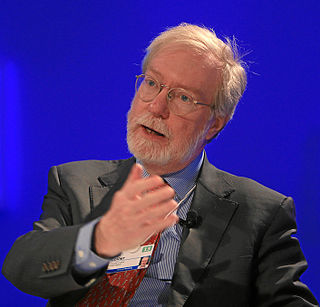A Quote by Henry Paulson
We have institutions that have been allowed to become too big to fail because we had all kinds of flaws in our financial infrastructure, in the whole way over-the-counter derivatives work.
Related Quotes
Over and over again, financial experts and wonkish talking heads endeavor to explain these mysterious, 'toxic' financial instruments to us lay folk. Over and over, they ignobly fail, because we all know that no one understands credit default obligations and derivatives, except perhaps Mr. Buffett and the computers who created them.
The global financial crisis is a great opportunity to showcase and propagate both causal and moral institutional analysis. The crisis shows major flaws in the way the US financial system is regulated and, more importantly, in our political system, which is essentially a bazaar of legalized bribery where financial institutions can buy themselves the governmental regulations they want, along with the regulators who routinely receive lucrative jobs in the industry whose oversight had formerly been their responsibility, the so-called revolving-door practice.
I spent my whole career thinking about risk, markets, infrastructure, and regulation. I had seen the financial crisis unfold, and I had seen the credit derivatives market get operationally ahead of itself, which resulted in systemic risk counterparty exposures. I began to believe that distributed ledgers had the capability to tackle that problem.
Most governments want their citizens to be part of the financial system, to be productive citizens as a result of having access to be able to manage and move money in a seamless way. But the traditional financial services infrastructure is not designed to handle that because, predominantly, it's an expensive infrastructure.
When we think of globalization we are thinking in part of structures and institutions that have been developed over time and that have allowed us to become more interdependent and interrelated. But the development, the extraordinary development, of those structures and institutions has not fundamentally transformed our humanity. We are still those animals with fears and anxieties and insecurities in the face of death and dread and disappointment and disease.



































